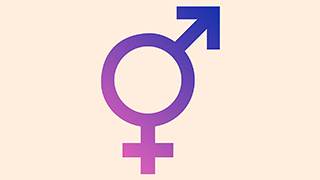MPs push for Equality Act 2010 to include 'gender identity'
- |

MPs will push to make 'gender identity' a protected characteristic under the Equality Act 2010, following a parliamentary debate last week.
Fewer than two dozen MPs met in the House of Commons last Thursday (1 Dec) to debate ‘transgender equality’, following the publication of a report in January this year, which called for a number of changes throughout public services.
Most significantly, the report, which was published by the Women and Equalities Select Committee, called for an amendment to the Equality Act 2010, to make self-declared ‘gender identity’ a protected characteristic.
But critics say that such an amendment would create significant problems with regards to the public safety, as well as undermine parental rights and remove protections of young children who are being encouraged to accept what is a harmful ideology.
A second reading of the Gender Identity (Protected Characteristic) Bill is due in February 2017.
Self-identification
'Gender reassignment' is currently a protected characteristic under the Equality Act 2010. This includes an individual who has undergone gender reassignment surgery, or states that they have imminent plans to do so.
But under the proposals set out in the Committee’s report, the Act would be amended to include anyone who self-identifies as the opposite gender.
The Government’s response to the report, published in July this year, said that the current terminology is adequate.
But during the debate in the Commons, opened by Maria Miller, Chair of the Women and Equalities Committee, as several MPs argued that the Government should review its response.
SNP MP Angela Crawley claimed that the "once world-leading legislation for the trans community in the Equality Act 2010 is fast becoming outdated.
"The Act uses outdated terminology such as 'gender reassignment' and 'transsexual'; these are now considered inaccurate descriptors. Such terms have given rise to the misapprehension that the Act provides only for trans people who have undergone medical gender-reassignment treatment. To clarify, the protected characteristic should be amended to 'gender identity'."
There was only one dissenting voice during the debate, as Labour MP Caroline Flint said that we should "be wary of creating gender-neutral environments that may prove more of a risk to women".
'De-medicalise'
The report also recommends that those who self-declare as the opposite gender should be able to obtain a Gender Recognition Certificate (GRC) without any documentation.
Currently, individuals wishing to obtain a GRC require proof that they have lived as the opposite gender for two years, as well as a documented mental health diagnosis of gender dysphoria.
In its response to the report, the Government said it would try to "de-medicalise the gender recognition process", and also called for a new legal category, 'gender non-binary', for those who do not identify as either male or female.
'Progressives impose their intolerance and tyranny'
Commenting on the debate, David Robertson, director of the Solas Centre for Public Christianity, said: "The irony here is that in the name of tolerance our progressives impose their intolerance and tyranny. There is apparently no ‘one size fits all’ when it comes to gender, and yet there is a one size fits all when it comes to educating children and indeed the whole world in the new progressive morality. Everyone in society is to be treated fairly and with dignity – except those who don’t agree with the progressive agenda!"
'Shift in understanding of ourselves'
Ruth Huldah of Anglican Mainstream said last week that amending the Equality Act would affect society’s very understanding of human identity:
"The problem with inserting 'gender identity' in the Equality Act is that a deep shift would be made in people’s understanding of themselves as human beings, whereby thoughts and ideas about themselves (often rooted in fetish) would take precedence over the reality of being embodied as male or female. This would not be good for mental health or public order and safety."
'The implications are huge'
David Robertson said that the implications for changing the Equality Act are "huge".
"'Gender identity' legally enshrines the concept of an innate fixed identity that overrides biological sex as the distinction between boys and girls, men and women. In other words, there would no longer be any way of legally differentiating between the sexes; it would become a matter of personal unverifiable feelings."
He also said that this would loosen protections for women: "Gender identity' would effectively replace the protected category 'sex' which is the only protection women and girls currently have."
Privacy and safety at risk
David Robertson also listed some of the problems that will arise, should such legislation pass.
"This would mean that any man would be able to declare himself 'female' in order to gain access to facilities where privacy is crucial to the dignity, comfort and safety of women and girls, such as toilets, changing-rooms, women’s refuges, single-sex hospital wards, prisons, rape crisis centres and women’s support services," he explained.
"The obvious consequence would be that women would not feel safe to access the services and facilities intended for them. Any man declaring himself to be a woman would also be eligible to win awards previously restricted to women and girls specifically to advance women and level the playing field with men, for example in sports, prizes and awards, shortlists and quotas."
Related links:
Trangender equality debate in the House of Commons (Anglican Mainstream)
The Tyranny of the Progressives: Another step backwards (David Robertston, The Wee Flea)
Transgender equality report (Parliament)
Transgender equality report: Government response (Gov UK)
